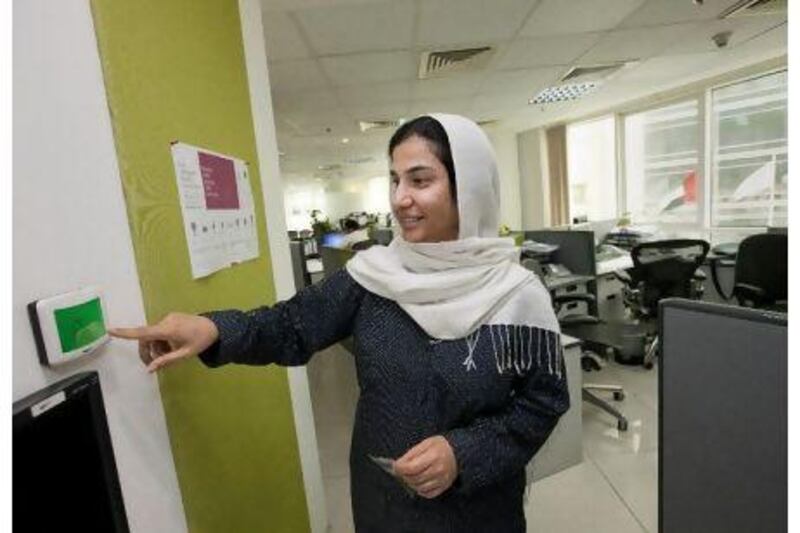ABU DHABI // As hot as the UAE gets in the summer, inside its shopping malls, hotels, offices, cinemas and homes the country is notorious for maintaining an icy chill.
So it is little wonder air conditioning accounts for a 60 per cent increase in the country's energy consumption during the summer months.
But turning up the thermostat only two degrees reduces energy consumption by an average of 16 per cent per year, said Tanzeed Alam, climate change and sustainability manager at the Emirates Wildlife Society - World Wide Fund for Nature.
"If you tackle air-conditioning consumption, you can make some big savings in energy use," he said.
One Dubai company has abandoned Arctic temperatures. More than a year ago Archcorp Architectural Engineering installed seven programmable thermostats that are tuned to about 25°C.
The company maintains that the measure - which has helped cut its electricity bills by more than half - makes for a perfectly comfortable working atmosphere.
"Some people like to put the thermostat down to 18 degrees and go to bed with blankets," said Farhana Imran, managing partner of the 43-strong architecture firm. "We believe it can be set to 24 or 25 degrees and for us, this is comfortable enough."
Tackling air-conditioning use is important because cooling is most in demand during the hot summer months, when the UAE is the most power-hungry.
In Abu Dhabi, for example, peak electricity demand reaches 9,000 megawatts in summer and drops by a third the rest of the year, said David Scott, executive director of economics and energy affairs at the Executive Affairs Authority.
Although the peak only lasts a few months, the emirate has to invest in expensive infrastructure to accommodate it. Diesel fuel, which is more polluting than most other types of fossil fuels, is also burnt to supplement power demand.
"This is neither the most economic, nor the most environmentally friendly way of solving the problem," said Mr Scott.
Office temperature can be an emotional issue anywhere in the world, said a spokesperson at the Abu Dhabi National Exhibitions Company, where the thermostats are maintained at 23.5 degrees Celsius.
"People's backgrounds, dressing, upbringing all have a role to play in how one prefers the temperature to remain," the spokesperson said.
"You often have two people sitting in close proximity to each other - one feeling too cold and the other feeling the temperature was just right, or vice versa," because of such factors," the spokesperson said.
Michael John, a 28-year-old from the UK who works in finance, said he and his boss have different tastes in temperature.
"I like the AC at 23.5°C," he said. "This is my comfort temperature. My boss likes a good 18°C. Because he is my boss, we work in an igloo."
Olga Fedorova, a 36-year-old from Kazakhstan, has already developed an aversion to the UAE's cold interiors in the four months since she arrived.
"I always carry a warm thing with me," she said. "I wonder how people get used to this. I think this is bad for your health, especially in summer when the temperature difference is so large between the outside and inside."
George Berbari, an expert in heating, ventilation, and air conditioning and district cooling systems, said that although turning up the thermostat up a few degrees can lead to big energy savings, other factors are also at play. Some of them - such as a building's insulation, its orientation and the type of AC system in use - are outside of individual control.
"What makes the biggest difference is to shut down the air conditioning when you don't need it," said Mr Berbari, who is also the chief executive of the engineering firm DC Pro.
Installing metres and charging people based on how much they consume would be the biggest driver for savings, he said. "Wherever there is a metre, people are saving anywhere between 20 and 40 per cent. Once people are conscious of the cost, then and only then will they start saving."
vtodorova@thenational.ae
Air conditioning heats up energy bills
Notorious for its icy chill in the summer, air conditioning accounts for a 60 per cent increase in consumption during the hot season.

Editor's picks
More from the national





